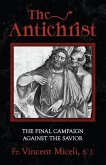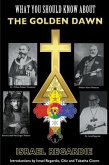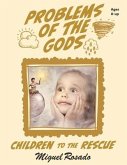First published in 1895, The Antichrist is one of Friedrich Nietzsche's most provocative and incendiary works-a fearless critique of Christianity and the moral values it has propagated in Western civilization. Written at the height of Nietzsche's intellectual powers, this book serves as a scathing denunciation of what he saw as the life-denying doctrines of organized religion, especially Christianity, which he believed had corrupted the very essence of human vitality and strength. In The Antichrist, Nietzsche confronts Christianity head-on, accusing it of promoting weakness, passivity, and a denial of life's true potential. He argues that Christian morality, with its emphasis on meekness, humility, and self-sacrifice, undermines the natural instincts of strength, creativity, and self-affirmation. For Nietzsche, the Christian ideal of virtue celebrates suffering and weakness rather than the pursuit of power, excellence, and individual greatness. This, he contends, has led to the decline of Western culture, replacing noble values with what he calls "slave morality." Nietzsche's critique extends beyond the institution of the Church to the very heart of Christian ethics. He challenges the figure of Jesus Christ, not as a historical person but as a symbol that has been distorted into an instrument of control. Nietzsche provocatively declares, "God is dead," not as a statement of atheism, but as a rallying cry to break free from the chains of religious dogma that stifle human potential. He envisions a new type of human being, the Übermensch (Overman), who transcends the limitations of conventional morality to create their own values rooted in life-affirming principles. This book is not simply an attack on religion but a call for the revaluation of all values. Nietzsche urges us to embrace the instincts, passions, and creative forces that make us truly human, rather than suppressing them in the name of divine or moral absolutes. He challenges readers to question everything they've been taught about good and evil, morality, and the nature of human flourishing. While The Antichrist is one of Nietzsche's most controversial works, it remains a vital text for those interested in philosophy, theology, and the critique of religion. Its fierce critique of Christian morality and its call for a new vision of human strength and autonomy continue to provoke thought and inspire debate. This modern translation captures the intensity and urgency of Nietzsche's prose, making his radical ideas accessible to contemporary readers. Whether you agree with Nietzsche's conclusions or not, The Antichrist remains a powerful challenge to rethink the values we take for granted and to embrace a life of courage, self-discovery, and the pursuit of individual greatness. Engaging with this text is not for the faint of heart, but for those willing to confront uncomfortable truths, The Antichrist offers a compelling vision of a life liberated from the constraints of conventional morality-one that invites us to live with authenticity, strength, and unyielding passion.
Bitte wählen Sie Ihr Anliegen aus.
Rechnungen
Retourenschein anfordern
Bestellstatus
Storno






